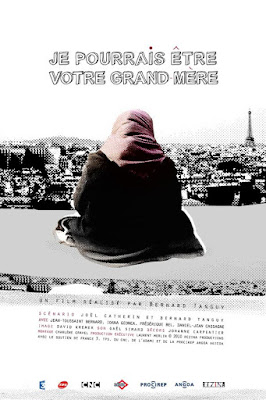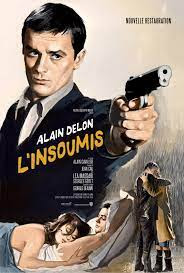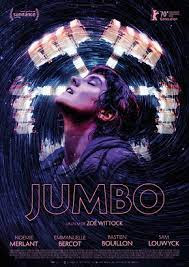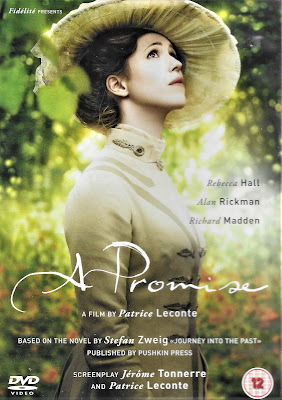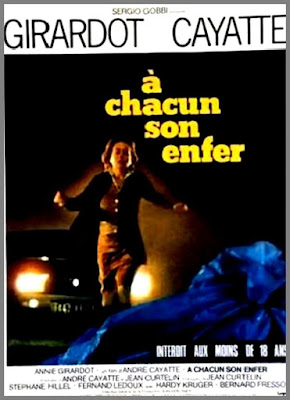The ideas behind this film struck me as highly interesting, although having seen it on YouTube I'm glad I didn't bother to buy this, the worst Cédric Klapisch film – out of eight more – that I've seen. I've no idea how much it cost for this film to be made, although it must have been a tiny fraction of Klapisch's previous feature, Un air de famille: surely his best film to date.
It's New Year's Eve 1999 and the young Arthur (Romain Duris) is watching a sci-fi film before going to a fancy dress party where everyone will be wearing clothes and make-up that they imagine will be worn in the future. Interestingly, and digressively, he seems to live opposite 57 rue de Turbigo, where there is a huge angel undoubtedly made more famous by Agnès Varda's short film Les dites Cariatides. But anyway, he's concerned that his companion Lucie (Géraldine Pailhas) has stopped taking the pill.
At the party he has sex with Lucie in the bathroom, and he withdraws, causing the audience to see a trail of sperm flying out of harm's way. And Lucie's angry as she doesn't understand why her partner didn't come inside her: well, he's just not ready for a family, yeah? It's more complicated than that.
Taking a post-coital piss, Arthur notices a problem with the bathroom roof, and investigates. This leads to another bathroom, then to other rooms, and soon he finds himself leaving the building and into a timewarp, into another world. A world largely covered by sand (some of this was filmed in Douz, Tunisia) but still in part recognisable as the Paris he's not in fact left in geographical terms. This is a kind of post-apocalyptic, or maybe global climatic France in 2070, when the sand invades, covering the past as when the Roman empire was buried by its future. Along with simple solar-powered vehicles, horse-drawn ones can be seen, and there are camels and ostriches: this is a world where low-tech and high-tech meet in harmony. And where Arthur will meet his aged son Ako (Jean-Paul Belmondo) and his grandchildren and great-grandchildren.
The idea is interesting, and it's one which could have been used subtly and intelligently. Unfortunately it degenerates fantastically: save the future, save your future by having sex. Sorry, but I'm not in any way convinced: this to me reads like a Catholic tract which the Pope couldn't have objected to! All the same, this is not the worst ever pro-Catholic film: the truly loathsome Énorme directed by Sophie Letourneur, which encourages men to break the law and create unwanted pregnancies, is horrific!





